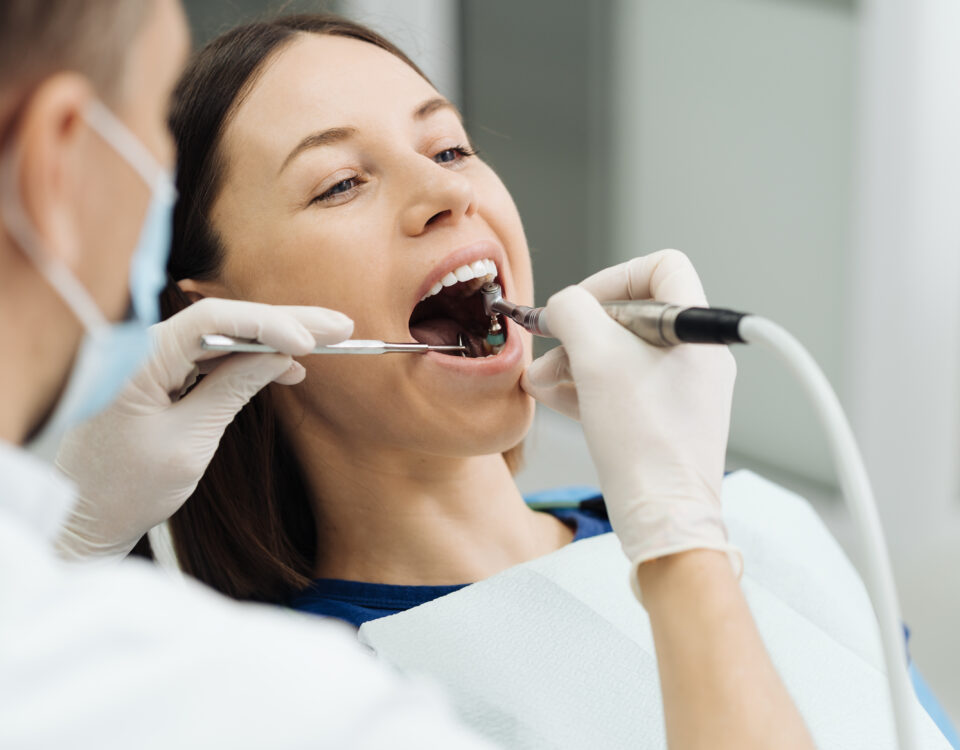Understanding Gum Disease: The Three Stages of Decay

5 Simple Cosmetic Dentistry Procedures to Enhance Your Smile
July 15, 2022
5 Reasons to Consider Sedation Dentistry
July 29, 2022Understanding Gum Disease: The Three Stages of Decay

Did you know that gum disease is the leading cause of tooth loss in adults? 47% of adults aged 30 years and older have some form of periodontal disease. It’s a serious condition that can affect your oral health and overall wellbeing if left untreated. In this blog post, we will discuss the three stages of gum disease and what you can do to protect yourself from this harmful condition.
What is Gum Disease?
Gum disease, also known as periodontal disease, is a bacterial infection of the gums that can destroy the soft tissue and bone that support your teeth. It is caused by plaque, a sticky film of food debris, bacteria, and saliva. Plaque forms on your teeth when you eat or drink sugary or starchy foods. The bacteria in plaque produce toxins that irritate and inflame your gums.
Stages of Gum Disease
There are three stages of gum disease: gingivitis, periodontitis, and advanced periodontitis.
2. Gingivitis
Gingivitis is the early stage of gum disease. Your gums may be red, swollen, and bleed easily when you brush or floss. However, at this stage, the bone and connective tissue that support your teeth are still healthy. Gingivitis is reversible with good oral hygiene and professional dental care.
2. Periodontitis
Periodontitis is an advanced stage of gum disease. The gums will have severe inflammation and begin to pull away from the teeth. This forms pockets between the teeth and gums that become infected. The bones and connective tissue that support the teeth are destroyed. Periodontitis is not reversible, however, we can control it with good oral hygiene and professional dental care.
3. Advanced Periodontitis
Advanced periodontitis is the most severe stage of gum disease. The gums are severely inflamed and pull away from the teeth, forming deep pockets. The infection damages the bones and connective tissue that support the teeth. The teeth may become loose, fall out, or need to be removed. Advanced periodontitis is not reversible, and it may require more aggressive treatment.
What to Do if You Think You Have Gum Disease
If you think you have this condition, it is important to see your dentist as soon as possible. If left untreated, it can lead to tooth loss and other serious health problems. Your dentist will perform a thorough examination of your mouth and may order X-rays to check for bone loss. Treatment for you will depend on the severity of the condition. In some cases, a deep cleaning may be all that is needed to remove the plaque and tartar from your teeth. More advanced cases may require more aggressive treatment, such as scaling and root planing, antibiotics, or surgery.
Treatment
Gum disease is treatable at any stage. The goal of treatment is to control the infection and stop the progression of your case. Treatment may include:
- Professional dental cleanings, which will remove plaque and tartar from your teeth.
- Scaling and root planing, which removes plaque and tartar from below the gum line.
- Antibiotics, which kill the bacteria that cause gum disease.
- Surgery, which may be necessary to restore damage caused by advanced periodontitis.
Prevention
Prevention begins at home. You can help keep your teeth and gums healthy by:
- Brushing your teeth twice a day with a fluoride toothpaste. To brush your teeth correctly, you should use a pea-sized amount of toothpaste and brush your teeth for two minutes using circular motions.
- Flossing daily to remove plaque from between your teeth. Unfortunately, brushing alone is not enough to remove all of the plaque from your teeth. Flossing helps to remove the plaque from these hard-to-reach areas.
- Eating a healthy diet and avoiding sugary and starchy foods. These types of foods can cause plaque to form on your teeth and can lead to the development of gum disease.
- Visiting your dentist regularly for professional teeth cleanings and checkups. These visits allow your dentist to remove plaque and tartar from your teeth and to check for any signs of gum disease.
Make an Appointment with Mountain Aire Dentistry
If you think you may have gum disease, it is important to see Dr. Chris Bockrath at Mountain Aire Dentistry as soon as possible. At our Broomfield clinic, we are dedicated to providing our patients with the highest quality of dental care. We offer a full range of services, from preventive care to treatment for advanced gum disease. To make an appointment, please contact us today!
When you visit our Broomfield dental office, your smile is our top priority. Our Dentists invite you to experience the difference a warm and caring team can provide for you and your family. Enjoy a unique and comfortable dental experience designed to bring a healthier and happier smile back into your life. We invite you to call or visit our Broomfield dental office and discover the exceptional difference we offer to those we serve.













